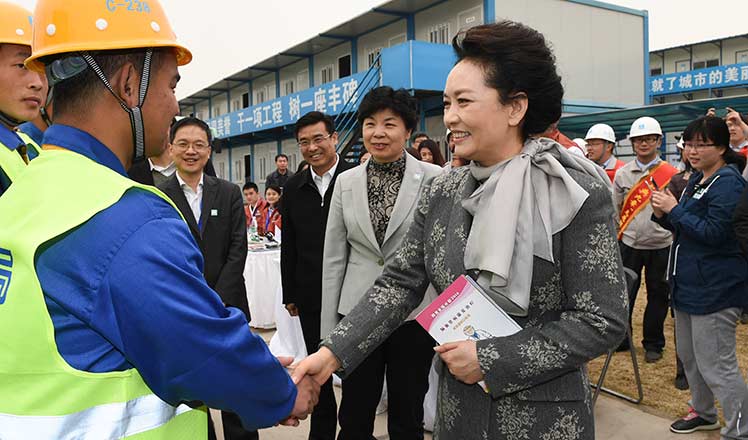China aims to launch Mars probe in 2020
Updated: 2016-03-21 16:39
(Xinhua)
|
||||||||
In an exclusive interview, Jia Yang, deputy chief designer of the Chang'e-3 lunar probe, tells Xinhua the Mars rover will have a better autonomous capability as Mars is much further away than the moon. The distance between Mars and Earth ranges from 55 million kilometers to 400 million kilometers.
"The Mars rover should be able to sense the environment, plan its route, conduct scientific exploration and detect faults autonomously. It should be a mobile intelligence," Jia says.
Two-way signal transmissions between Mars and the Earth could be as long as 40 minutes. So most of the time, the rover will deal with things on its own. Ground controllers will solve the complicated problems, Jia says.
Chinese space experts say they still face a lot of technological hurdles in developing the Mars rover, which should be stronger than the lunar rover Yutu.
Since Mars is further from the sun than the Earth's moon, its solar panels should be as large as possible to generate more electricity, Jia says.
"Although the temperature change on Mars is less drastic than that on the moon, the Mars rover still needs an 'overcoat' to keep warm," Jia says.
Sandstorms often form on the red planet during summer, which inspired the story in the Hollywood blockbuster "The Martian." During the sandstorms, the solar energy will drop dramatically. Chinese space experts will design a "sleep" mode for such occasions, says Jia.
A prototype model of the Mars rover was displayed at the Airshow China 2014. It was about 2 meters long, with six wheels. Its size, weight and technologies were close to those of the American Mars rovers Spirit and Opportunity. Unlike the rover Curiosity, which uses a nuclear battery, the Chinese Mars rover will use solar power.
"Exploring the red planet and deep space will cement China's scientific and technological expertise. The knock-on effect is that innovations and independent intellectual property rights will surge, and, as a result, China's core competence will increase, pushing development in other industries," says Jia.
"As China continues with its lunar mission, glimpsing further and further into deep space, it will play a bigger role in solving key frontier scientific questions," Jia says.
- Pentagon chief says Europe needs to accelerate anti-IS efforts
- Jeb Bush endorses Cruz's election bid
- Chinese passenger may sue Virgin Atlantic
- People pay condolence to victims of Brussels attacks
- Police issue wanted notice for suspect after Brussels attacks
- China eyes cooperation plan for Lancang-Mekong countries

 First lady Peng Liyuan leads fight against tuberculosis
First lady Peng Liyuan leads fight against tuberculosis
 Faces at Boao Forum for Asia Annual Conference
Faces at Boao Forum for Asia Annual Conference
 In photos: Lunar eclipses visible in eastern China
In photos: Lunar eclipses visible in eastern China
 Chinese chasing Spring blossoms around the country
Chinese chasing Spring blossoms around the country
 Migrant couple returns to hometown to raise chickens
Migrant couple returns to hometown to raise chickens
 Victims of Brussels attacks commemorated
Victims of Brussels attacks commemorated
 In photos: Brussels rocked by multiple explosions
In photos: Brussels rocked by multiple explosions
 Raul Castro and Obama hold talks in Havana
Raul Castro and Obama hold talks in Havana
Most Viewed
Editor's Picks

|

|

|

|

|

|
Today's Top News
Marriott unlikely to top Anbang offer for Starwood: Observers
Chinese biopharma debuts on Nasdaq
What ends Jeb Bush's White House hopes
Investigation for Nicolas's campaign
Will US-ASEAN meeting be good for region?
Accentuate the positive in Sino-US relations
Dangerous games on peninsula will have no winner
National Art Museum showing 400 puppets in new exhibition
US Weekly

|

|







